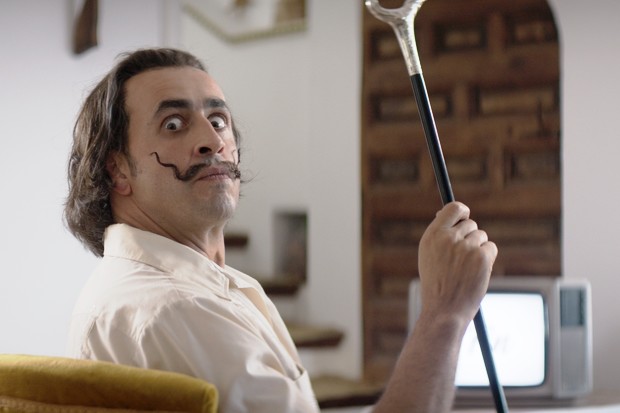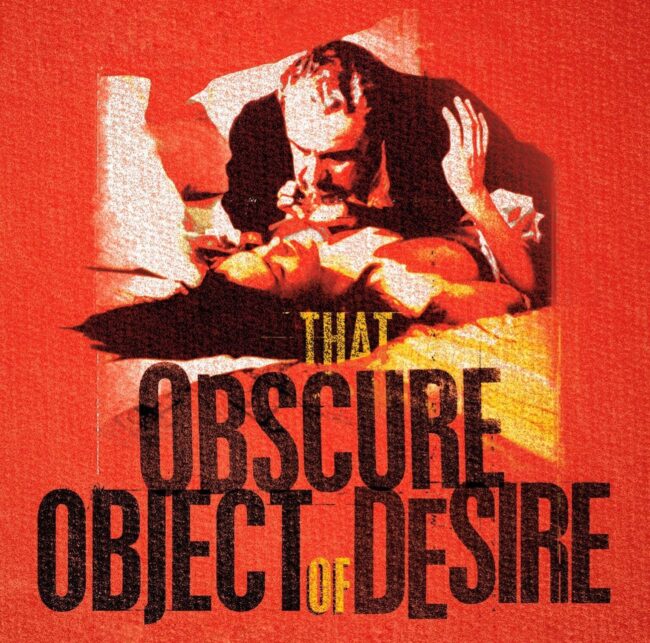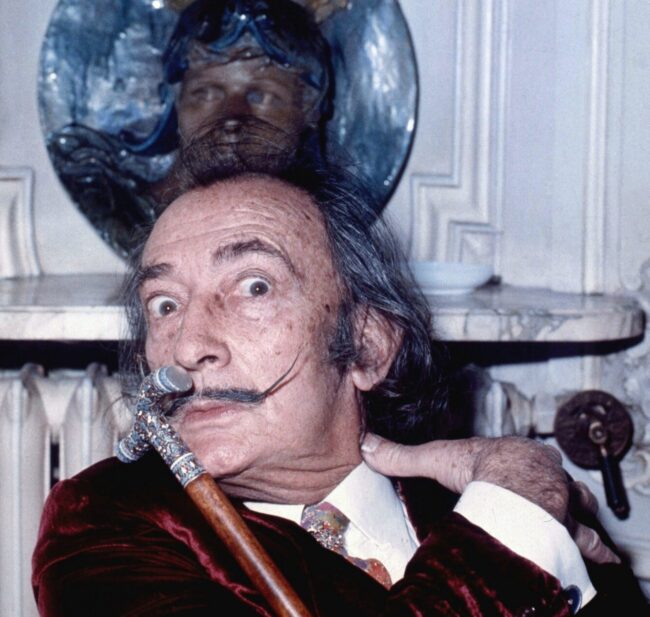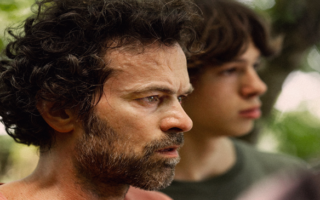Film Review: Daaaaaalí!, Directed by Quentin Dupieux
- SUBSCRIBE
- ALREADY SUBSCRIBED?
BECOME A BONJOUR PARIS MEMBER
Gain full access to our collection of over 5,000 articles and bring the City of Light into your life. Just 60 USD per year.
Find out why you should become a member here.
Sign in
Fill in your credentials below.
Quentin Dupieux is a 49-year-old director who’s gained a cult following, especially with the young, for his off-beat comedies. Similar to certain film geniuses of the past (Godard, Fassbinder, Raoul Ruiz) he makes movies fast and with a slapdash disregard for convention. That’s not to say that Dupieux is a genius, though he’s certainly prodigious (he’s also had a busy career in music at the same time). His last film, Yannick, a breakout of sorts, was about a young loser who holds an entire theater hostage after being offended by what he considers to be elitist snobbery. The film showed flashes of brilliance and its brevity helped give it the explosive charge of an M-80.
Daaaaaalí! is also short, a mercy compared to recent bloated three-hour-plus “epics”. As usual Dupieux explores new territory. The movie is about the eponymous figure of the title: legendary surrealist artist Salvador Dalí.
Dalí is still probably the most widely-known artist of our time, his paintings of melting clocks familiar even to high-schoolers. But his iconic status has been superseded by Warhol, Basquiat, Koons. For most of the 20th century the Spanish artist, who proudly proclaimed himself mad and cultivated an eccentric appearance complete with pointy waxed moustache, was an international celebrity. He’s less remembered for that now – unlike at other Dupieux films the audience has been on the older side.

Still from Daaaaaali! Atelier de Productions, France 3 Cinéma
This isn’t just another biopic, fortunately. The premise in and of itself is banal: a youngish woman journalist (Anaïs Demoustier, who’s played in several Dupieux films) wants to interview Dali, which effort results in numerous absurd and amusing encounters. In fact, part of the premise is a bit odd: Judith was a pharmacist who abruptly quit her job and decided to become a journalist. We don’t really understand her reason for choosing Dalí as an interview subject. The movie seems to take place when Dalí is older (though we see him at different ages), no longer the outrageous global icon. It’s not even clear if she knows much about his work, though she declares herself a fan.
Judith has a hard time at first. She’s a traditional journalist with a notepad, not even a tape-recorder, and Dali refuses to be interviewed in such a low-grade manner. He insists on being filmed (by the largest, most expensive camera available). Never-say-die Judith hooks up with a documentary-maker, Jérôme (Romain Duris), who’s happy to indulge in what seems like a viable project for TV or even the movies. Dalí is duly impressed by the idea of an entire documentary about his magisterial (in his own mind) person, but he keeps moving back the goal-posts regarding acceptable conditions, which is the central joke of the movie.

Anaïs Demoustier at the Festival de Cabourg, 2018. Photo credit: Georges Biard / Wikimedia commons
Salvador Dalí‘s own experience with cinema began with the surrealist masterpiece Un Chien Andalou, which he made in France with fellow Spaniard Luis Buñuel. That was Dalí’s only major effort in the movies except for designing the dream sequences in Hitchcock’s Spellbound. Buñuel was the real cinematic artist, and filmically Dupieux seems to have been inspired by two late Buñuel films: First is That Obscure Object of Desire, in which a character played by Fernando Rey tries to seduce a young woman (played by two actresses), but is frustrated time and again by fate, the woman’s slyness, even by his own hidden blockages. Like Rey’s character, Judith must confront different realities, in Dalí, the world around her, and within herself.

“That Obscure Object of Desire”
The other Buñuel film is The Discreet Charm of the Bourgeoisie, in which a group of bourgeois couples try to have a dinner party but are constantly interrupted. This is mirrored in a section of Dupieux’s film where Dali is trying to finish a dreary dinner with a group of admirers. A priest proceeds to recount a dream, but the account keeps getting longer and longer. We’re given his account through a recurring series of dream sequences, and Dupieux himself adopts a similar recursive structure, returning to past scenes and images in the movie. This might seem forbidding, but the shortness of Daaaaaalí! makes it palatable. While Buñuel had his pet themes, the clergy, the bourgeoisie, sexual obsession, Dalí was mostly interested in himself, celebrity, and a plush lifestyle.
Unsurprisingly the film is rather sexless. (In his autobiography Buñuel claimed that until Dalí met his wife Gala he was proudly asexual.) Judith is erotically low-voltage, her interest in the artist a mix of the professional and the platonic. Her relationship with her presumably gay producer Jéröme is either testy or conniving.

Portrait of Dalí by Allan Warren, 1972, in the Hotel Le Meurice. Wikimedia commons
The characterizations won’t be to everyone’s taste, but the acting is mostly wonderful. Ms. Dupieux’s low-key befuddlement and determination are affecting. The five veteran actors (Gilles Lellouche, Edouard Baer, Jonathan Cohen, Pio Marmaï, Didier Flamand) playing Dalí express his quirky mannerisms hilariously, but he’s always human. (Whether all those actors were necessary is another story.) As the documentary producer Romain Duris is, as usual, effortlessly intense and funny (his next film is about another artist: Pierre Schoeller’s Rembrandt). Though the interest in the film lies in Dupieux’s quirky direction, it’s the acting that holds it together.
Daaaaaalí! might seem like a whimsical comedy à la Wes Anderson. But aside from the fact that the filming is edgier, the form more improvisatory, there is the sense of a serious meaning lurking beneath the surface. We detect a certain desperation behind Dalí’s persona, which becomes more poignant in the sequences where we see him very aged. Ms. Demoustier may seem dowdy at times, but her groundedness is arguably more resilient than the artist’s extravagance. Yet one never knows: When Dalí’s body was exhumed after 30 years to settle a paternity claim, that absurdly flamboyant moustache of his was still in tip-top condition.
Production: Atelier de Production/France 3 Cinéma
Distribution: Diaphana Distribution
Lead photo credit : Still from Daaaaaali! Atelier de Productions, France 3 Cinéma
More in cinema, film review




